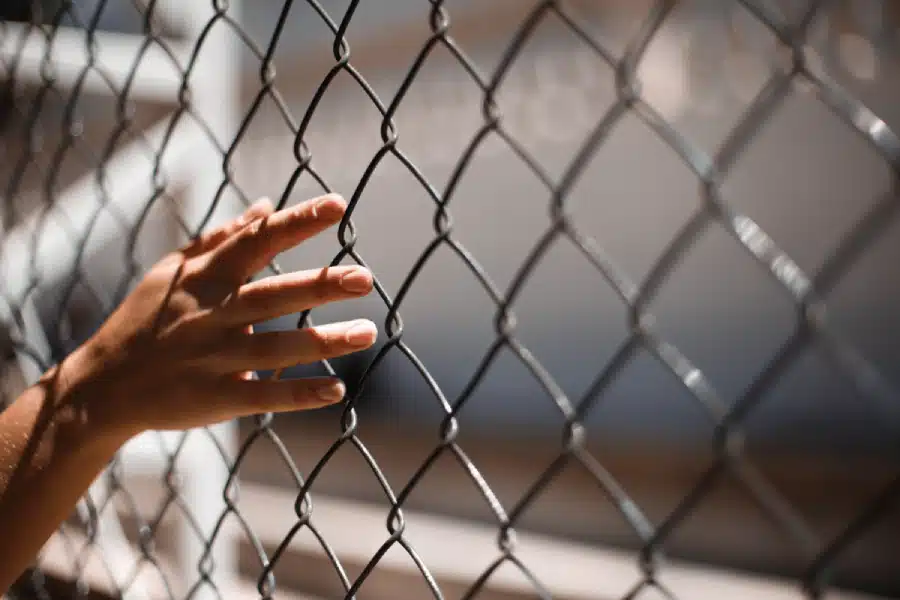A controversial bill, Senate Bill 1727, is advancing through the Texas legislature that could send more minors to adult prisons, despite ongoing allegations of abuse in the state’s juvenile detention facilities. The bill has attracted significant attention, particularly after a 2023 Department of Justice (DOJ) report that allegedly revealed rampant abuse in Texas youth prisons, including physical assault and sexual abuse. The bill proposes harsher penalties for juveniles accused of committing multiple felony offenses, including the possibility of transferring them to adult prisons.
The Growing Crisis in Texas Juvenile Detention
Following the DOJ’s report, which allegedly found widespread abuse in Texas juvenile detention centers, lawmakers are considering a bill that could expand the use of adult prisons for youth offenders. This proposal comes less than a year after a federal investigation into conditions at the state’s juvenile detention centers, where minors were subjected to sexual abuse, excessive use of force by both staff and other minors, and prolonged isolation.
The investigation allegedly showed that youth in these centers faced significant risks, including a lack of proper mental health services and inadequate supervision. Despite these findings, state lawmakers are proposing to increase the number of minors incarcerated in adult facilities, where they would allegedly face even greater risks.
Calls for Reform and Opposition to the Bill
Advocates for juvenile justice reform have strongly opposed the bill, arguing that sending minors to adult prisons is not the solution. They argue that the focus should be on improving conditions within juvenile detention centers and offering rehabilitation-focused programs to address the root causes of youth offenses.
Charles Rotramel, CEO of the nonprofit organization re:Vision, which works with at-risk youth, expressed concerns about the bill’s potential consequences. He warned that sending more children to adult prisons would not only increase their exposure to violence but also fail to address the systemic issues contributing to juvenile crime.
Increased Use of Isolation and Alleged Physical Abuse
One of the most troubling aspects of Texas’s juvenile detention system is the alleged frequent use of solitary confinement, which has been linked to worsening mental health conditions among minors. According to the DOJ report, the number of youth placed in isolation has increased significantly, and there is growing evidence that solitary confinement allegedly exacerbates trauma, leading to long-term psychological harm.
Critics of the bill argue that instead of focusing on incarceration, the state should be investing in programs designed to rehabilitate youth offenders. This includes community-based alternatives to detention and trauma-informed care that addresses the mental health needs of young people.
The Risk of Greater Abuse in Adult Prisons
Sending minors to adult prisons raises significant concerns about their safety and well-being. Under federal law, juveniles are supposed to be kept separate from the adult prison population, but this is not always strictly enforced. Many adult facilities allegedly do not have the resources to properly care for young offenders, and there is a risk that they will face greater physical and sexual abuse in these settings.
Despite these concerns, Texas lawmakers, including Sen. Charles Perry, the bill’s sponsor, argue that the legislation is designed to provide protection for staff working in juvenile detention centers, who have allegedly been assaulted by the youth they supervise. Perry claims the bill is aimed at ensuring a safer working environment, but reform advocates argue that the bill fails to address the root causes of violence in youth prisons.
Calls for Accountability and Action
Despite the growing evidence of abuse and the concerns raised by advocates, the Texas Juvenile Justice Department (TJJD) has struggled to implement effective reforms. The department’s own internal reports have allegedly shown that turnover among correctional officers is consistently high, with staffing shortages exacerbating the problem. Moreover, budget documents suggest that the state has not added the promised number of beds for youth offenders, despite approving funding for the expansion.
What’s Next for Texas Juvenile Justice?
As the debate continues, lawmakers will need to consider the broader implications of sending more youth offenders to adult facilities. Critics of the bill argue that such a move will only perpetuate a cycle of violence and abuse, rather than addressing the systemic issues that plague Texas’s juvenile justice system.
Survivors Have Legal Options
For survivors of alleged abuse in Texas juvenile detention centers, the need for reform and accountability is critical. Many youth who have suffered physical or sexual abuse in these facilities may be entitled to seek justice through the courts. If you or someone you know has been a victim of abuse in a Texas juvenile detention center or adult prison, legal options may be available.
At Helping Survivors, we can connect you with experienced attorneys who specialize in cases of abuse in detention facilities. Even if you have not yet come forward, you have the right to pursue justice and seek compensation for what you have endured. Contact us today for a confidential consultation and let us help guide you through the legal process.
Reach Out for Help
If you or someone you know has experienced abuse in a juvenile detention facility, it’s important to take action. Our team of experts is here to help you understand your legal rights and ensure that those responsible for the abuse are held accountable. Don’t wait—there is still time to seek justice.








